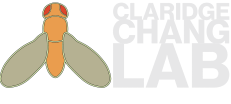We are looking to recruit a Data Scientist.
Job Description
The Signature Research Programme in Neuroscience and Behavioural Disorders (NBD) is focused on understanding the structure and function of the nervous system, and the neural mechanisms underlying human neurological, psychiatric and ophthalmological disorders.
The Claridge-Chang Laboratory, Duke-NUS Medical School is looking for a data scientist to help transform the way scientists analyze data. The position is funded for two years. Recently, the laboratory has led the way in introducing a new way of data analysis and estimation statistics. It has achieved this progress with a suite of software, Data Analysis with Bootstrapped Estimation (DABEST), available as libraries in R, Python, and a web application. These software tools have wide usage, representing an important shift in statistical culture in biomedical research.
The role will involve both software development for new modules of estimation statistics, and application of estimation methods to exciting research questions, encouraging a productive dialogue between analysis methods development and application. The selected candidate will perform a variety of research activities, including but not limited to the following:
Job Description
The Signature Research Programme in Neuroscience and Behavioural Disorders (NBD) is focused on understanding the structure and function of the nervous system, and the neural mechanisms underlying human neurological, psychiatric and ophthalmological disorders.
The Claridge-Chang Laboratory, Duke-NUS Medical School is looking for a data scientist to help transform the way scientists analyze data. The position is funded for two years. Recently, the laboratory has led the way in introducing a new way of data analysis and estimation statistics. It has achieved this progress with a suite of software, Data Analysis with Bootstrapped Estimation (DABEST), available as libraries in R, Python, and a web application. These software tools have wide usage, representing an important shift in statistical culture in biomedical research.
- https://github.com/ACCLAB/DABEST-python
- https://github.com/ACCLAB/dabestr
- https://www.estimationstats.com/#/
The role will involve both software development for new modules of estimation statistics, and application of estimation methods to exciting research questions, encouraging a productive dialogue between analysis methods development and application. The selected candidate will perform a variety of research activities, including but not limited to the following:
- Develop the DABEST visualization package for new categories of estimation data analysis.
- Develop an empirical Bayes method for analysis of high-dimensional analysis and visualisation with estimation.
- Document the code and write introductory materials to introduce the new methods.
- Record instructional videos introducing the methods and describe the new methods to a broad audience.
- Coordinate the estimationstats.com web application.
- Analyse and process data from neuroscience and proteomic experiments, using estimation and other statistical methods.
- Contribute to project management, presentations and publications of research work
- Provide guidance to junior researchers as well as undergraduate and graduate students.
- PhD or Master’s Degree in Statistics, Data Science, Bioinformatics, Computational Biology or related areas with demonstrated expertise in statistical computing and data visualisation.
- Experience in programming and software development, as well as machine learning would be advantageous.
- Experience with statistical modelling and analysis of large-scale data.
- Has good programming skills in R and Python.
- Demonstrate good knowledge, skills and expertise, with potential to achieve research and methods-development excellence.
- Able to effectively multi-task and perform well under pressure, both independently and as part of a team.
- Able to prioritise and work collaboratively in a diverse workforce.

 RSS Feed
RSS Feed